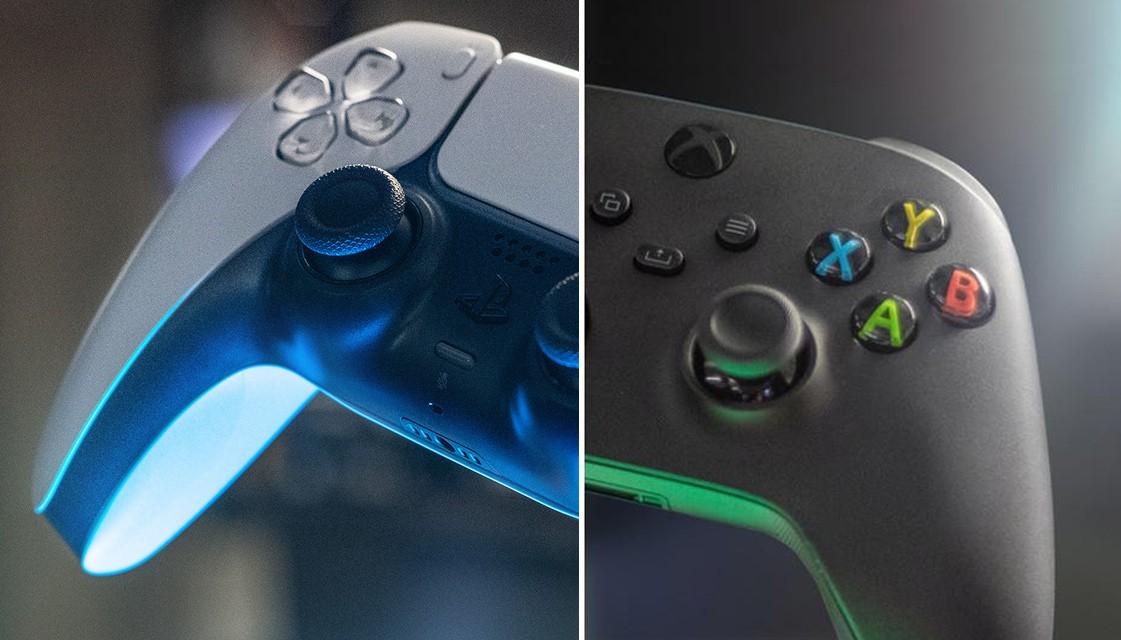
The race between Xbox and Playstation for best next-generation console is red hot as both are released this week, with casual and hardcore gamers deciding which to get.
But is throwing money down on a PS5 or Series X the best bang for your buck in a world where near-limitless possibilities exist on a gaming computer?
The case for a console
Gaming enthusiasts spent months waiting for the specifications of the next-generation consoles to be revealed.
The competition to cram the best hardware into both of the latest consoles was fascinating, but gamers were more intrigued to see whether a console could put a decent gaming computer on the ropes, especially as prices for computer components skyrocket due to COVID-19-related shortages.
And the next-generation consoles certainly don't disappoint.
The Xbox Series X and PS5 both feature an 8-core AMD CPU, 16GB of GDDR6 RAM and a solid-state drive, so they'll handle all the latest games with ease.
With the potential to run games like Assassin's Creed Valhalla in silky-smooth 4K at 60 frames per second, these are fully-fledged gaming superconsoles.
The Xbox Series X is a bit smaller, but compared to a gaming PC even the PS5 is still relatively compact, portable and can handle a few knocks as you transport it from the house to the bach during weekend getaways.
The consoles will easily play your music, stream your television and act as an advanced Chromecast if you need it to, although none of this is particularly new.

On paper and according to early benchmark tests, the Series X slightly outperforms the PS5 and launches in New Zealand for $800, putting it $50 ahead of its predecessor, the Xbox One, and only slightly less expensive than the Playstation 5 which starts at $820.
So what would you get for the same money if you were to build a gaming computer?
The answer may not surprise you: absolutely nowhere.
I sat down, crunched the numbers and assembled a gaming computer that would rival the Xbox Series X and PS5.
It'll cost you at least $1700 - and that's before spending up large on a monitor, keyboard, mouse, headset and other accessories.
Below are the two set-ups I put together, each of which costs nearly $1000 more than a next-generation gaming console.
Basic Intel build to compete with Series X and PS5:
- Intel i5 10500 CPU
- Kingston A400 960GB SSD
- Gigabyte H310M-S2H MB
- G Skill Ripjaw 16GB DDR4 RAM
- EVGA RTX2060
- Aerocool Glider Tower
Basic AMD build to compete with Series X and PS5:
- Ryzen 5 3400 CPU
- Samsung 860 1TB SSD
- Gigabyte GAB450M MB S2H
- G Skill Ripjaw 16GBDDR4 RAM
- Asus Rog Strix RX5700 T GPU
- Aerocool Glider Tower
Core components like a graphics card that can handle ray-tracing cost almost as much as the console all by itself, making it quite an investment.
Hardcore computer enthusiasts avert your gaze, but the reality is ticking all the boxes of features offered in a next-gen console - 4K resolution, ray-tracing, quick startup - is unachievable without spending almost three times the amount.
So why buy a gaming computer?
Against the great value offered by the Xbox Series X and PS5, the case for a gaming computer looks dire.
But there are things even the most advanced gaming consoles can't do yet - things like running Microsoft Powerpoint.
Jokes aside, the point of a gaming computer is to be a versatile, high-powered piece of technology that does everything you need it to, without any complications.
Want to play the big titles like League of Legends, CS:GO or DOTA? Buy a gaming computer.
Want to type up an article as you wait to respawn in Call of Duty? Buy a gaming computer.
Want to simultaneously play games, listen to music, chat with friends, tweet and stream the latest episode of The Mandalorian? You get the picture.
Where most gamers are swayed is the sheer number of games available on a computer - upwards of 1.2 million and growing. With that kind of range, you begin to see why many modern gamers are opting towards building their own gaming PC.
But gaming computers aren't without their faults. Big but delicate, they lack the portability and durability of the consoles, which means transporting them or moving them around is no small feat.
The verdict
The reality is consoles and gaming computers cater to different markets.
For the hardcore gaming enthusiast obsessed with performance and the flashing neon lights of a gleaming new computer, nothing but the best will do. If that means going out and spending the price of five new PlayStations on a gaming computer, so it shall be.
But for the casual gamer, looking to unwind with friends on a Friday night or squeeze in a quick game of Call of Duty during their lunch break, a console will do just fine.


